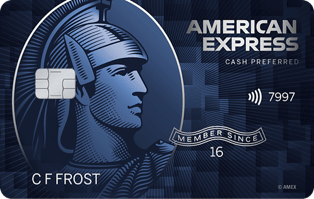- myFICO® Forums
- Types of Credit
- Credit Cards
- Re: Relationship between CC statement dates and ba...
- Subscribe to RSS Feed
- Mark Topic as New
- Mark Topic as Read
- Float this Topic for Current User
- Bookmark
- Subscribe
- Mute
- Printer Friendly Page
Relationship between CC statement dates and balance reporting dates to bureaus
Is your credit card giving you the perks you want?
Browse credit cards from a variety of issuers to see if there's a better card for you.
- Mark as New
- Bookmark
- Subscribe
- Mute
- Subscribe to RSS Feed
- Permalink
- Report Inappropriate Content
Relationship between CC statement dates and balance reporting dates to bureaus
Hi thanks for looking. I want to learn more about this topic, and would be grateful if anybody can share their knowledge on it.
I just read about a lady whose score may have suffered because her CC reported a large balance earlier than her statement date. Is there any sort of rule that we can go by to help avoid this situation, for example "no company reports more than 3 days before the statement date" or "this particular bank has been known to report up to 8 days before, but all other companies never report more than 4 days early" etc.?
- Mark as New
- Bookmark
- Subscribe
- Mute
- Subscribe to RSS Feed
- Permalink
- Report Inappropriate Content
Re: Relationship between CC statement dates and balance reporting dates to bureaus
The rule is probably "Don't use Synchrony Bank". This isn't a problem with any other lender.








FICO® 8: 831 (Eq) · 824 (Ex) · 812 (TU)
- Mark as New
- Bookmark
- Subscribe
- Mute
- Subscribe to RSS Feed
- Permalink
- Report Inappropriate Content
Re: Relationship between CC statement dates and balance reporting dates to bureaus
@Mister wrote:Hi thanks for looking. I want to learn more about this topic, and would be grateful if anybody can share their knowledge on it.
I just read about a lady whose score may have suffered because her CC reported a large balance earlier than her statement date. Is there any sort of rule that we can go by to help avoid this situation, for example "no company reports more than 3 days before the statement date" or "this particular bank has been known to report up to 8 days before, but all other companies never report more than 4 days early" etc.?
Reporting balances early is not at all a common practice, it's also not unheard of as we saw with the post you're referring to (and we're talking about Synchrony). What likely caused it to get reported early was the fact that it was a large purchase. In addition, it was very likely a large atypical purchase. If a consumer builds, or demonstrates a history of making large purchases on a consistent basis, this is highly unlikely to happen.
The vast majority of lenders don't report balances until the statement date, or shortly thereafter. The other thing to remember is that utilization on revolving credit has no memory. It is the most easily manipulated factor on your credit report. High reported utilization and points loss one month? Reduce reported utilization and the points come right back.
- Mark as New
- Bookmark
- Subscribe
- Mute
- Subscribe to RSS Feed
- Permalink
- Report Inappropriate Content
Re: Relationship between CC statement dates and balance reporting dates to bureaus
@Mister wrote:Hi thanks for looking. I want to learn more about this topic, and would be grateful if anybody can share their knowledge on it.
I just read about a lady whose score may have suffered because her CC reported a large balance earlier than her statement date. Is there any sort of rule that we can go by to help avoid this situation, for example "no company reports more than 3 days before the statement date" or "this particular bank has been known to report up to 8 days before, but all other companies never report more than 4 days early" etc.?
This is something I was never aware of, I have multiple cars with AMEX, Citi, Chase, Barclay, Goldman... Not once have I ever seen any of them report prior to the closing date. I usually handle my payments before closing dates to avoid large balances posting to the CRAs. I had never heard of a bank posting prior to that date.
@Varsity_Lu I don't have a single Sync, and I guess that's why I've never heard of this practice.
I would be pretty annoyed in a bank not having a static method of reporting. As it it, I get annoyed that AMEX posts their membership fee at the end of the month right as the statement closes without any warning. Although once you know the month you can overpay that month to cover the fee to avoid the report. Whereas Citi, only allows you to post 7.5% over the current balance, which ties up over paying prior to the fee.
Discover 22K ---------------------------- Credit Union MC 17K
Cap1 QS 11K ---------------------------- Barclay 3.4K
AMEX Blue Cash AU 15.5K ------ Barclay Apple AU 10K
AMEX BCP 15K
1 Installment loans:
Auto 60K /
AMEX Hilton Aspire 25K
Vantage 3.0: TU:738 EQ: 737 03-17-2020
Ch. 7 DC 12/2014
- Mark as New
- Bookmark
- Subscribe
- Mute
- Subscribe to RSS Feed
- Permalink
- Report Inappropriate Content
Re: Relationship between CC statement dates and balance reporting dates to bureaus
Just to note that US Bank (and thus Elan) report at the end of the month, unrelated to any statement closing date. But it is predictable.
- Mark as New
- Bookmark
- Subscribe
- Mute
- Subscribe to RSS Feed
- Permalink
- Report Inappropriate Content
Re: Relationship between CC statement dates and balance reporting dates to bureaus
@Anonymous wrote:Just to note that US Bank (and thus Elan) report at the end of the month, unrelated to any statement closing date. But it is predictable.
Completely slipped my mind... appreciate you reminding me @Anonymous
- Mark as New
- Bookmark
- Subscribe
- Mute
- Subscribe to RSS Feed
- Permalink
- Report Inappropriate Content
Re: Relationship between CC statement dates and balance reporting dates to bureaus
@Openwater wrote:
I would be pretty annoyed in a bank not having a static method of reporting. As it it, I get annoyed that AMEX posts their membership fee at the end of the month right as the statement closes without any warning. Although once you know the month you can overpay that month to cover the fee to avoid the report. Whereas Citi, only allows you to post 7.5% over the current balance, which ties up over paying prior to the fee.
One option is to set up billpay from your Bank or Credit Union.
This provides the ability to "push" what ever amount, whenever you want, getting around
"pending" and last minute "auto add on" charges (Monthly Fees / AF, Etc.).
- Mark as New
- Bookmark
- Subscribe
- Mute
- Subscribe to RSS Feed
- Permalink
- Report Inappropriate Content
Re: Relationship between CC statement dates and balance reporting dates to bureaus
On the flipside of this, Chase will report, off-cycle, one's $0 balance within a few days after being paid.
- Mark as New
- Bookmark
- Subscribe
- Mute
- Subscribe to RSS Feed
- Permalink
- Report Inappropriate Content




